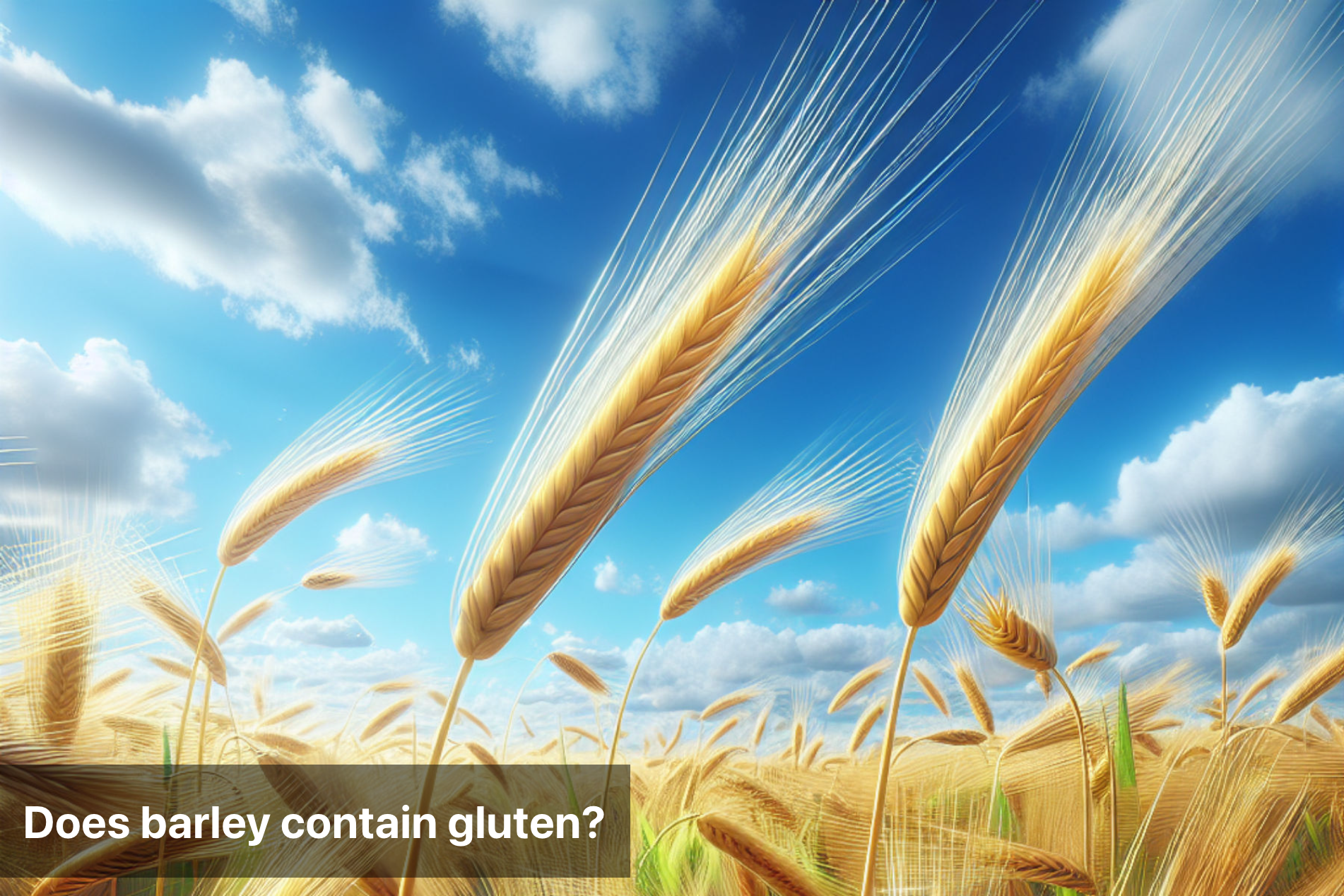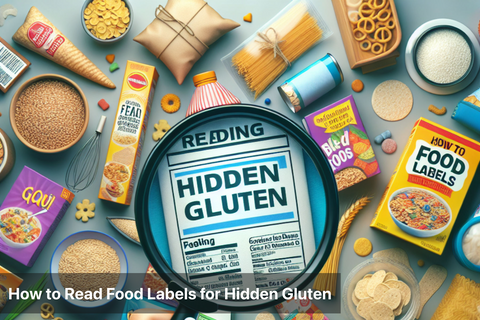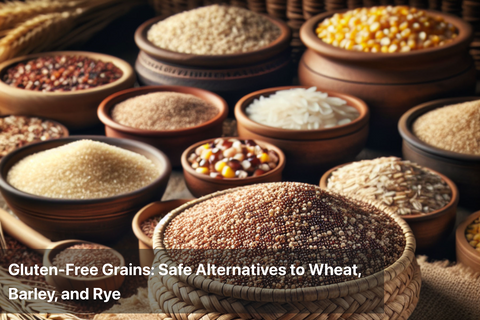
Does barley contain gluten?
When it comes to gluten and its presence in various grains, one common question that arises is, "Does barley have gluten?" There seems to be a prevailing misconception surrounding this topic, which is crucial to address, especially for individuals following gluten-free diets. Understanding the truth about gluten in barley is essential for making informed dietary choices.
Barley, unlike some grains, contains gluten. This fact may come as a surprise to many, as barley is often not as widely recognized for its gluten content compared to wheat. The specific proteins found in barley can be problematic for individuals with gluten sensitivities, making it imperative for them to be aware of barley's gluten status.
For those questioning, "Is barley gluten-free?" the answer is a definitive no. Barley cannot be classified as gluten-free, which has significant implications for individuals meticulously avoiding gluten due to health reasons. Therefore, the labeling of barley products is crucial to help consumers make educated decisions about their food choices.
Intriguingly, by uncovering the truth about barley and gluten, we can better navigate the complex landscape of gluten-free diets and empower ourselves to make optimal choices for our well-being.

Nutritional Profile of Barley
|
Nutrient |
Amount (per 100g of cooked barley) |
Contains Gluten? |
|---|---|---|
|
Calories |
123 kcal |
Yes |
|
Protein |
2.3 g |
Yes |
|
Carbohydrates |
28.2 g |
Yes |
|
Dietary Fiber |
3.8 g |
Yes |
|
Fat |
0.4 g |
No |
|
Iron |
1.3 mg |
No |
|
Magnesium |
22 mg |
No |
|
Potassium |
93 mg |
No |
|
Phosphorus |
35 mg |
No |
|
Folate (Vitamin B9) |
16 µg |
No |
|
Gluten |
N/A |
Yes |
Side Effects of Gluten in Barley
1. Digestive Issues
-
Symptoms: Bloating, gas, diarrhea, constipation, and stomach cramps.
-
Cause: Gluten triggers an immune response in the small intestine, leading to inflammation.
2. Fatigue
-
Symptoms: Feeling tired or lethargic after consuming gluten.
-
Cause: Poor absorption of nutrients due to intestinal damage in people with celiac disease.
3. Skin Problems
-
Symptoms: Dermatitis herpetiformis, an itchy, blistering rash.
-
Cause: Gluten can cause immune responses in the skin, particularly in those with celiac disease.
4. Headaches and Migraines
-
Symptoms: Frequent headaches or migraines.
-
Cause: Inflammation caused by gluten sensitivity or celiac disease can lead to neurological symptoms.
5. Joint and Muscle Pain
-
Symptoms: Unexplained joint or muscle pain.
-
Cause: Inflammatory reactions to gluten can affect muscles and joints.
6. Depression and Anxiety
-
Symptoms: Mood swings, depression, or anxiety.
-
Cause: Poor absorption of essential nutrients and chronic inflammation can affect mental health.
7. Nutritional Deficiencies
-
Symptoms: Anemia (iron deficiency), vitamin deficiencies (especially B12, D), and weight loss.
-
Cause: Damage to the intestinal lining reduces nutrient absorption.
8. Autoimmune Disorders
-
Symptoms: Worsening of autoimmune conditions like thyroid disease or type 1 diabetes.
-
Cause: Gluten consumption can trigger immune responses that affect other organs.
9. Neurological Issues
-
Symptoms: Numbness, tingling, or balance problems.
-
Cause: Inflammatory effects of gluten can impact the nervous system, leading to conditions like gluten ataxia.
10. Delayed Growth (in Children)
-
Symptoms: Stunted growth or delayed puberty.
-
Cause: Malabsorption of nutrients due to gluten-induced damage in the intestines can affect growth.

Gluten Content in Barley: What You Should Know
The question "Does barley have gluten?" has been answered conclusively – yes, barley contains gluten. This fact is crucial for individuals adhering to gluten-free diets, highlighting the need for awareness when consuming barley-based products. It is essential to understand the distinction between gluten-free and gluten-containing grains to make informed dietary choices.
For those wondering "Is barley gluten-free?" the answer is clear – barley is not considered gluten-free due to its gluten content. This distinction underscores the importance of carefully scrutinizing food labels and understanding the potential risks associated with consuming barley for individuals with gluten sensitivities.
In essence, the discussion on gluten in barley serves as a reminder of the complexities surrounding gluten and the significance of informed decision-making in managing gluten-related conditions. By staying informed and vigilant, individuals can navigate the nuances of gluten content in grains like barley effectively while prioritizing their health and well-being.
FAQs
-
Can people with gluten intolerance safely consume barley?
Unfortunately, barley contains gluten and should be avoided by individuals with gluten intolerance, including those with celiac disease.
-
What is the gluten content in barley compared to other grains?
Barley is a high-gluten grain, similar to wheat, rye, and triticale. It is not safe for those following a gluten-free diet.
-
Are there any gluten-free alternatives to barley for people with gluten sensitivities?
Yes, there are several gluten-free grains like rice, quinoa, millet, and buckwheat that can be used as substitutes for barley.
-
How can I identify if a product contains barley or gluten?
Check food labels for ingredients like barley, malt, malt extract, malt flavoring, or malt vinegar, as they all contain gluten.
-
Is it safe for individuals with gluten sensitivities to consume barley-based alcoholic beverages?
Individuals with gluten sensitivities should avoid beers, ales, and other barley-based alcoholic drinks, as they contain gluten and may have adverse effects.
This Blog post is an initiative by Lo! Foods, to provide accurate and Nutritionist / Doctor approved information related to Health. Lo! Foods is India's leading brand for Everyday Functional Foods. Foods designed for specific Health conditions or Needs. Lo! Foods also runs India's largest range of Low Carb Healthy Cloud Kitchens, under the brand names of Lo!, ProteinChef, ATH (All Things Healthy) and DiabeSmart.















Leave a comment
Your email address will not be published.